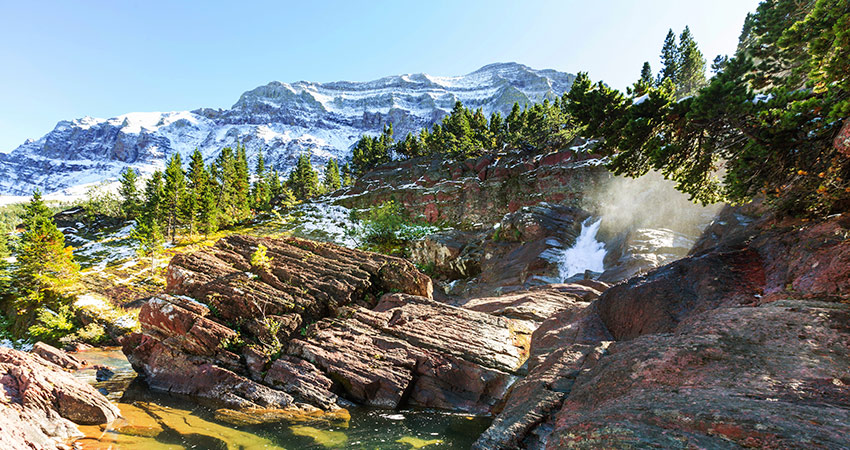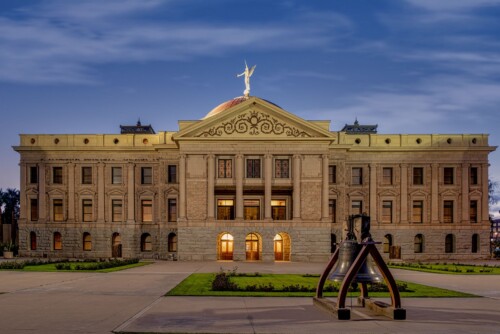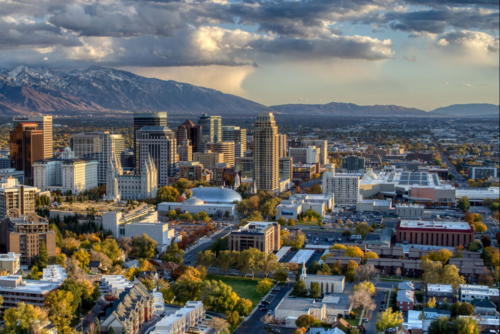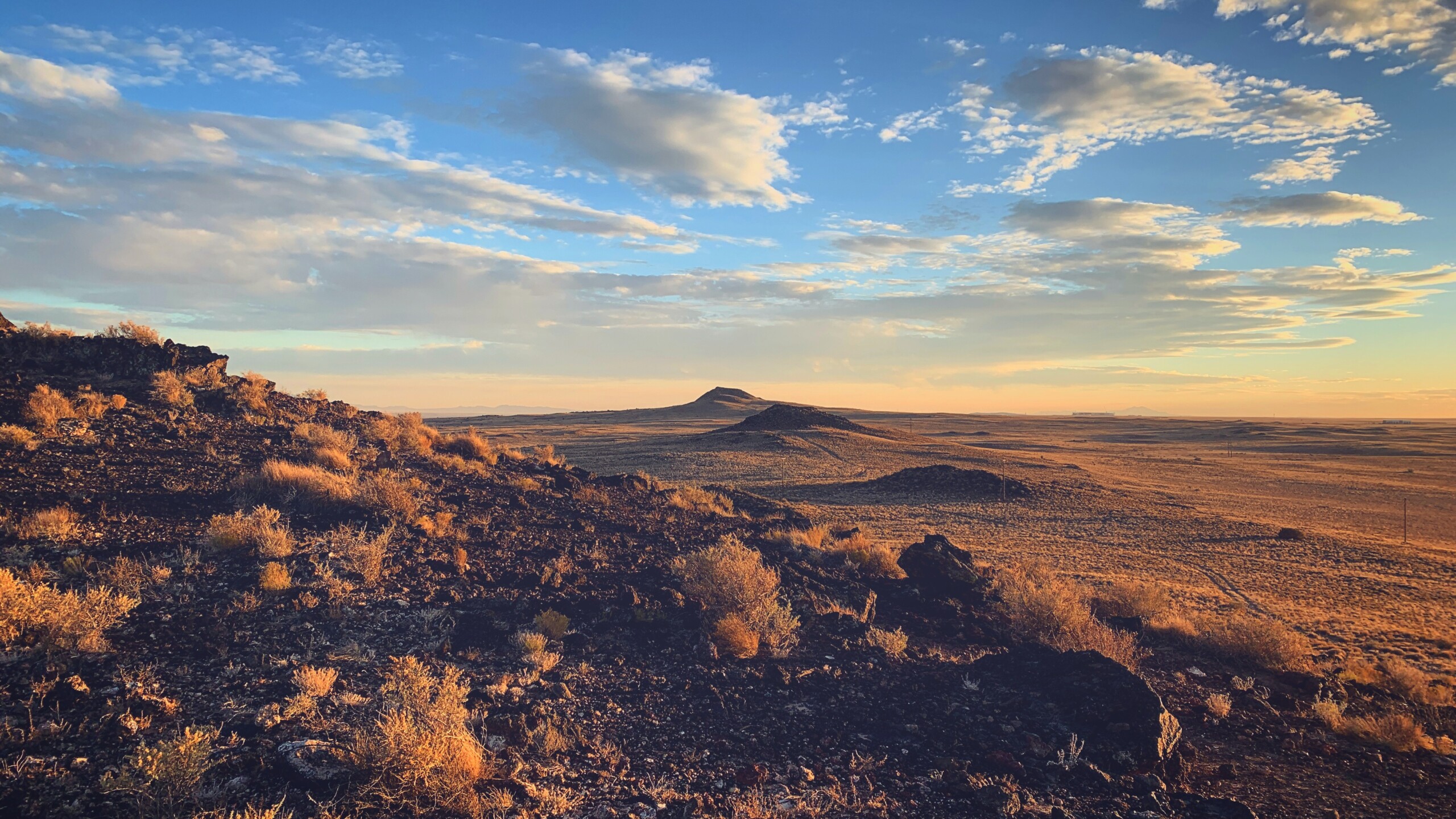Annual Report 2021
We can’t talk about state-level policies without talking about the impact of state agencies and commissions. State agencies are often charged with implementing statutes issued by the legislature or executive branch and can have a lot of influence on when, where, and how specific programs are executed and funding is directed. State commissions are specifically set up to provide oversight, protect the public interest, and implement rules and regulations with major impacts such as environmental protection, electricity rates, and even communication infrastructure.
At WRA, we know that when we protect the health of the environment, we can also protect the health and well-being of the communities that rely on it for their lives and livelihoods. Since the early 1990s, WRA has shown up, advocated, and helped create rules that hold agencies and commissions accountable to their communities and the environment.
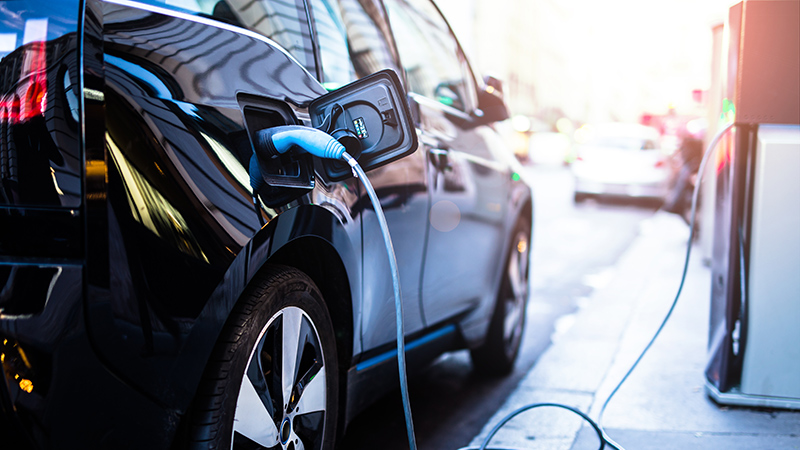
Transportation Electrification Breakthrough at the Arizona Corporation Commission
As the momentum for electric vehicles (EVs) has grown over the past few years, utilities have emerged as key players in building out a charging network sufficient for increasing the number of EV drivers on the road. However, advocates in Arizona have struggled to make significant progress. In 2019, the Arizona Corporation Commission (ACC) — the state commission responsible for regulating investor-owned electric utilities — created a process to discuss transportation electrification, and it seemed promising.
Unfortunately, after three rounds of stakeholder meetings and multiple reports, the ACC failed to make headway in driving the utilities to invest in EV infrastructure. The goal is for more consumers across the state to access charging stations and pay reasonable rates for EV charging at home. In other states, WRA has successfully enacted laws requiring utilities to file transportation electrification implementation plans, which require them to define exactly how and when they would support adding additional EVs on the road. But Arizona legislators were not doing the same.
In 2021, WRA took a more proactive approach, shifting its focus to work with the commission to create a rule requiring utilities to develop concrete plans for advancing EV adoption. WRA presented at public meetings, advocated directly to commissioners and other stakeholders, crafted language, and advised a commissioner to propose the order. And it worked! The order garnered bipartisan support on the ACC to become a rule: Arizona Public Service and Tucson Electric Power were required to file plans in the summer of 2022 and every three years thereafter. This achievement means that five of WRA’s states now have a requirement to regularly file implementation plans, so WRA can ensure they are ambitious, well designed, and addressing barriers to charging infrastructure.
WRA’s technical understanding, regional experience, and unparalleled on-the-ground knowledge of how state commissions work resulted in a decision with major environmental impact that will scale across our region. The road to getting more EV chargers in Arizona has taken many a blind turn, but now we are on the straightaway.
Protecting People Over Polluters at the Colorado Water Quality Control Commission
In 2020, the Colorado Water Quality Control Commission decided to put polluters over people in one of the most egregious rollbacks of water quality protections in the state’s history. With little notice and ignoring advice from its own staff, the commission ruled to weaken important antidegradation rules for two streams in Denver’s North Platte neighborhood — Clear Creek and the South Platte River — an area with a long history of experiencing environmental injustices. The rule allowed polluters like Metro Wastewater and Molson Coors in Golden to discharge pollutants at greater concentrations as long as any other pollutant in the stream was at a higher concentration. From the time that rule was initially passed, WRA and other organizations worked together to determine a collective response.
Then in 2021, in an attempt to retroactively justify its ill-conceived action, the commission tried to apply the rollback to all rivers and streams across Colorado. But WRA and our partners rallied. Stakeholders from a spectrum of communities and backgrounds showed up to testify in defense of our waterways and to stand in solidarity with local neighborhoods. Our coalition was able to stave off the attack on statewide water protections and secure a hearing in the summer of 2022 to allow community members to testify in favor of restoring full protections to Clear Creek and the South Platte River.
Doubling Our Efforts and Funding for Low-Income Electric Vehicle Adoption Programs at New Mexico’s Public Regulation Commission
New Mexico’s legislature passed a law in 2019 requiring investor-owned utilities to file transportation electrification implementation plans at the Public Regulation Commission. This was a major first step in forcing the three largest utilities in the state — Public Service Company of New Mexico, Southwest Public Service Company, and El Paso Electric — to seriously commit to facilitating electric vehicle adoption across the state. Most importantly, this process creates an opportunity for the public and advocates like WRA to have a voice.
In 2021, all three utilities filed their plans and WRA was actively involved to ensure good outcomes for the environment and communities across New Mexico. With input from environmental justice groups, WRA successfully argued for funding for designated low-income programs tailored to the unique needs of these customers, for flexibility to ensure that popular programs can remain funded for the duration of the plan, and for materials to be provided for customers in both English and Spanish.
WRA’s experts are no strangers to intervening and testifying before state commissions. Our combination of experienced lawyers and top-notch analysts makes our advocacy in front of state commissions extraordinarily effective. In fact, our recommendations convinced the hearing examiner to significantly increase, and in two cases double, the budget amounts initially proposed by the utilities.

Protecting Cultural Resources at the State Land Office
New Mexico’s varied landscapes contain a wealth of historic, archaeological, and cultural sites, many of which are located on the state’s 9.2 million acres of state trust lands. The 2021 discovery of ancient footprints at White Sands National Park was a watershed moment in the understanding of New Mexico’s early inhabitants and underscored the importance and timeliness of protecting such sites. That’s why in 2021, we used our knowledge of the New Mexico conservation landscape to help get the Cultural Properties Protection Rule over the finish line with the State Land Office.
The rule, two years in the making, mandates cultural resource surveys for all ground-disturbing activities (for example, mining, drilling, energy development, and even restoration projects) on state trust lands. The comments we filed with the office also pushed the state to dedicate resources to assist with the required surveys to accommodate conservation partners planning restoration projects but possibly lacking the resources to perform the surveys themselves.
WRA experts were also glad to see and supportive of the protocol included in the rule that requires proactive communication with applicable Tribal Historic Preservation Officers. We believe this rule is a step toward incorporating Indigenous perspectives in the state’s land management decision making and ensuring the integrity of culturally significant properties in New Mexico for generations to come.
Innovating Clean Car Standards at the Public Utility Commission in Nevada
Nevada became the second state in the Interior West and 15th state in the nation to adopt a zero-emission vehicle (ZEV) standard in 2021 — a major step for states tackling pollution in the transportation sector, the leading source of greenhouse gas emissions nationwide since 2017. The ZEV standard gives Nevadans access to a greater array of electric vehicle models and to the economic development opportunities of transportation electrification, all while addressing climate change. While the ZEV standard is not a new policy, with WRA’s involvement, the Nevada program introduces a new crediting system that will make the policy do more, faster.
California is the only state allowed to make its own emission standards under the federal Clean Air Act, but states that choose to adopt California’s ZEV standard have flexibility in how they implement the programs. WRA’s clean energy experts seized this opportunity to craft a first-of-its-kind crediting system that has major implications for our region. The crediting system used by most states can incentivize manufacturers to sell electric vehicles in California, instead of the state where the ZEV standard is adopted. Nevada’s program disincentivizes, using this original crediting system, and incentivizes by bringing electric vehicle models into the state early. That ensures sales happen within the intended state, and the state benefits from all of the environmental and economic results.
WRA’s work that focuses on the details, even when nuanced and complex, sets our region and Nevada apart as an innovative leader in how states adopt ZEV standards.


